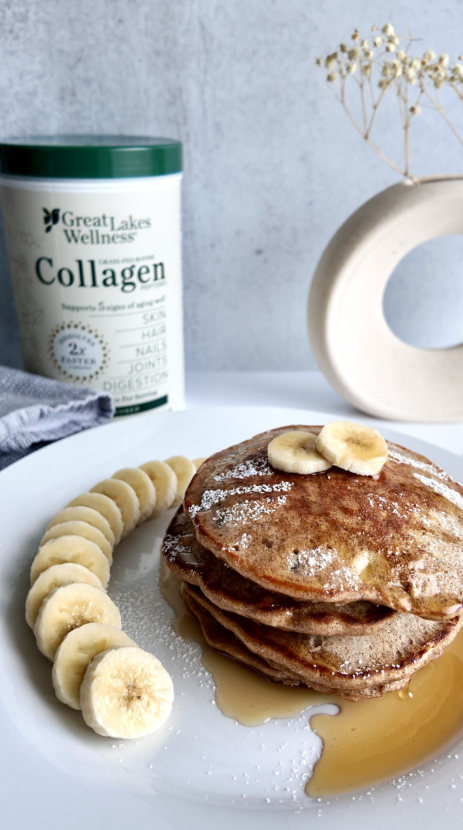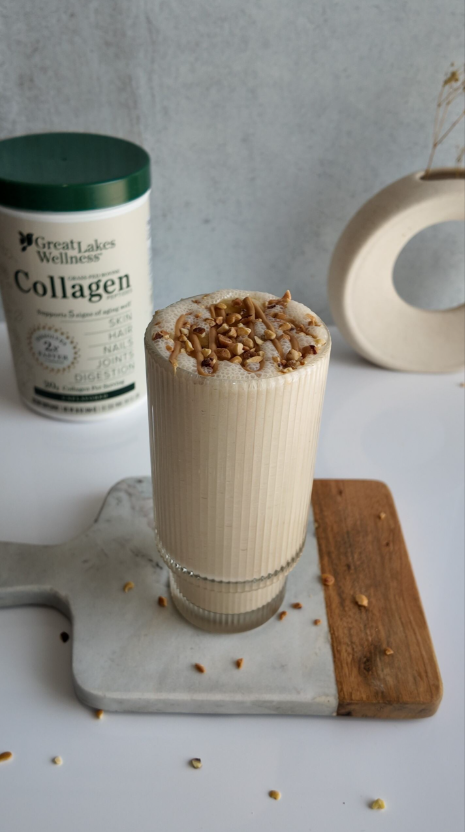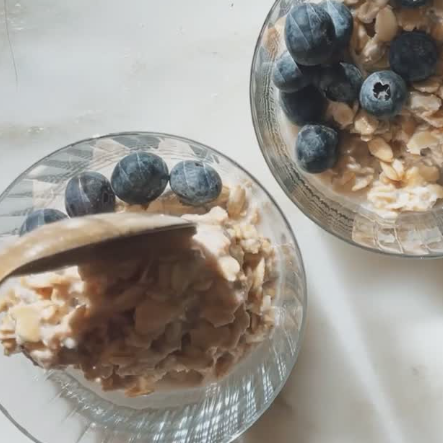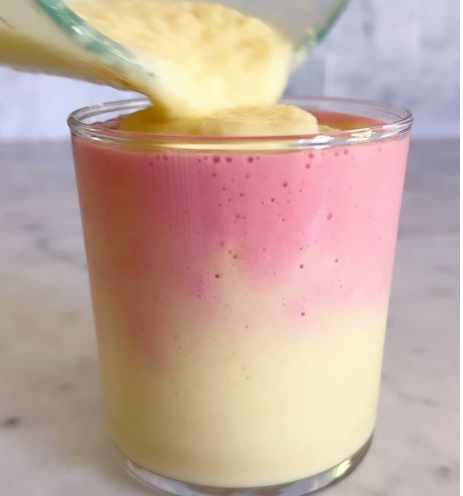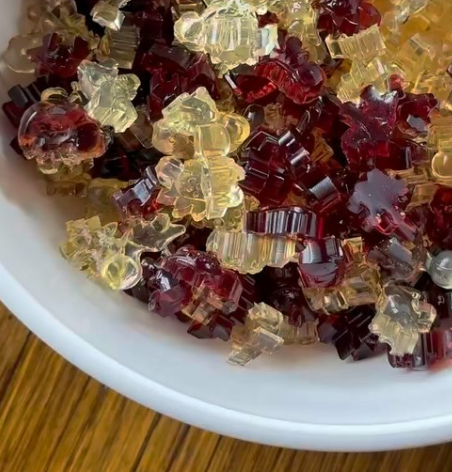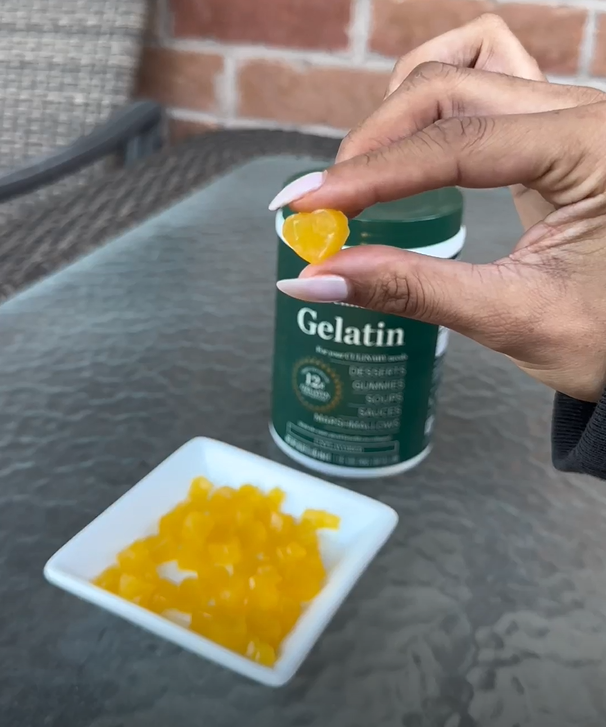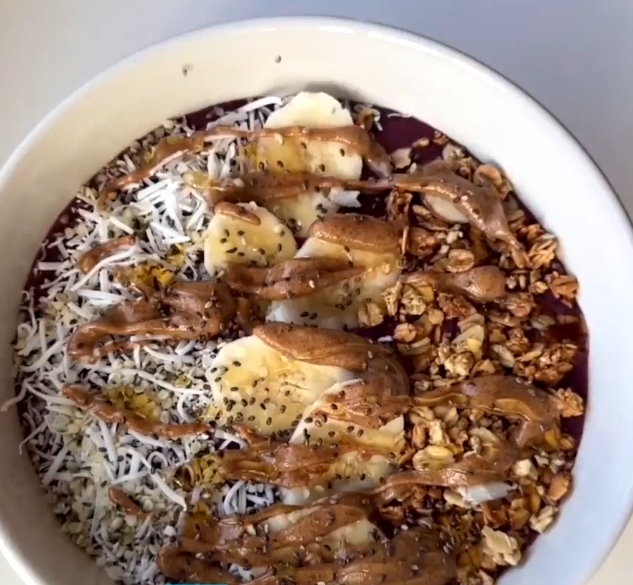Okay, so we have all heard that MCT oil is a staple when it comes to keto, right? If you are having a hard time remembering, think of the famous, or infamous, keto coffee that contained MCT and butter. Yes, yes...that one. But did you know that incorporating MCT Oil or MCT Powder into your diet can be beneficial without following the ketogenic diet? It’s true! So to truly understand what the buzz around MCT Oil, let’s talk about what MCTs are.
So what are MCTs?
MCT is short for medium chain triglyceride, which doesn’t quite roll off the tongue as easily as MCTs, but basically, a triglyceride is a type of fat that can be converted to ketones and then used for energy. These fats, or triglycerides, have two main purposes; they are either burned and used for energy, or they are stored as body fat. But as we’ve come to learn, not all fats are necessarily bad - shoutout to avocados everywhere! Quick side note about fats, they are generally broken down into short, medium or long chain fatty acids and like we mentioned, MCTs are medium chain triglycerides, which is the ideal length to be easily metabolized and absorbed, which is one of the reasons why people love MCT products so much! (4)
Okay, but what can MCTs do for me?
I know, I know...you didn’t come here for a science lecture, so let’s get to the point. Let’s talk benefits; because MCTs are easily metabolized and absorbed, they produce more ketones within the liver. Again, if you’ve ever been on keto, you know that increased ketone levels, or byproducts of metabolized fat, are essential for supporting your metabolism when it comes to the ketogenic lifestyle.
Did we mention that MCTs may also be a good source for energy? As we noted earlier, fats in the liver are broken down and are either used for energy or stored as body fat and because MCTs are digested more easily, it can become a great and immediate source of energy. (1,2,3,6,7)
How do I know which MCT product to choose?
Lucky for you, Great Lakes Gelatin has a few options when it comes to MCT supplements. We have Organic MCT Oil and Organic MCT Powder, both are cold pressed from coconuts with absolutely no use of chemicals during processing. One of the great things about these MCTs is that they are unflavored and can be added to any coffee drink, smoothie or meal without compromising any existing flavors. Choosing between MCT Powder and MCT Oil, really comes down to preference and how you plan to incorporate MCTs into your diet. There are a couple things to keep in mind when choosing between oil and powder. MCT Oil, although unflavored, may have a slight coconut taste when added to beverages - also, be sure to blend any beverage you add the oil to - and it does contain more calories per serving than the powder, but has zero carbs. MCT Powder, on the other hand, has a few carbs but less calories and even contains organic Acacia Fiber for added benefits.
Let’s not forget our game-changing supplement: Keto Collagen + MCT. Think of this product as a rich and delicious vanilla coffee-creamer developed with your ketogenic lifestyle in mind! This product takes everything you love about our MCT Powder and combines it with our premium Collagen Hydrolysate, lightly sweetened with botanically sourced ingredients, to bring you a delicious coffee creamer or even a smoothie alternative!
If you are curious as to how you can incorporate MCTs into your diet, here are some fun and delicious recipes!
INGREDIENTS
- ½ cup frozen blueberries
- ½ cup frozen strawberries
- 1 frozen banana, roughly sliced
- 1 tbsp nut/seed butter of choice
- 1 scoop Great Lakes MCT powder
- 1 serving protein powder (optional)
- Milk of choice to thin as needed
DIRECTIONS
- Start by blending the berries, banana, nut butter, MCT powder, and protein powder (if using) on high with 2 tbsp milk for 2 minutes.
- Once mixture is smooth, add additional milk until it reaches your desired thickness.
- Top with extra fruit, coconut shreds, granola, and/or nuts!
INGREDIENTS
- Dark Layer20 oz Stevia sweetened chocolate chips or other low carb chocolate chips of choice
- 1 tbsp Great Lakes Gelatin Co. Organic MCT oil
- White Peppermint Layer1 cup shredded coconut, unsweetened (coconut flakes will work)
- 2-3 tbsp Great Lakes Gelatin Co. Organic MCT Oil
- 2 1/2 tsp peppermint extract
- Liquid stevia or erythritol
- Optional GarnishesToasted or raw coconut shreds (unsweetened)
- Toasted or raw chopped almonds
DIRECTIONS
- Set up your chocolate molds on a baking sheet or line 24-count mini muffin pan, 12 standard sized muffin pan with paper or silicone muffin liners. Set aside.
- Place the coconut in a high-speed blender and process for 1 minutes until completely pureed. Add 1 tablespoon of MCT Oil and process another minute or until the coconut mixture is pureed into a smooth texture similar to peanut butter. If your coconut is still dry, continue adding MCT until it is smooth, but not runny. It should stick to your spoon. Add the peppermint extract and sweetener to taste. Set aside.
- Place the chocolate a microwavable bowl and cook for 30 seconds. Give it a stir and repeat a 2 to 3 more times until chocolate is melted. Be sure not to burn. When chocolate is melted, add the MCT Oil and stir to combine.
- Spoon a little bit of chocolate on the bottom of the chocolate mold or lined muffin tin. It should be just enough to cover the bottom. Place in the freezer for 5-10 minutes to harden.
- Next, spoon a teaspoon or two (depending on the size of your mold) of the coconut mixture on top of the hardened chocolate bottoms. Place in the freezer for 5-10 minutes to harden.
- Finish the fat bombs by topping with the rest of the melted chocolate. Then top with optional garnishes like crushed toasted almonds or coconut shreds. Place in the freezer to harden one more time.
- Eat 1 or 2 fat bombs any time you get a craving for something sweet in between meals. Enjoy!
Sources:
- Schönfeld P, Wojtczak L. Short- and medium-chain fatty acids in energy metabolism: the cellular perspective. J Lipid Res. 2016 Jun;57(6):943-54. doi: 10.1194/jlr.R067629. Epub 2016 Apr 14. PMID: 27080715; PMCID: PMC4878196.
- Marie-Pierre, SO, Mayrsohn,B., O’Keeffe, M., Kissileff, H., Choudhury, A., Laferrere, B. Impact of medium and long chain triglycerides consumption on appetite and food intake in overweight men. .Eur J Clin Nutr. 2014; 68(10): 1134-1140.
- Mumme, K., Stonehouse, W. Effects of medium-chain triglycerides on weight loss and body composition: a meta-analysis of randomized controlled trials. J Acad Nutr Diet. 2015; 115(2):249-63.
- Volpe, Stella Lucia. Medium-Chain Triglycerides and Health. ACSM’s Health and Fitness journal. Volume 24; No. 1.
- American Heart association. Saturated Fat. org
- Schonfeld, P., Wojtczak, L. Short and medium-chain fatty acids in energy metabolism: the cellular perspective. J Lipid Res. 2016; 57(6): 943-954.
- St-Onge, M., Ross, R., Parsons, W., Jones, P. Medium-chain triglycerides increase energy expenditure and decrease adiposity in overweight men. Obes Res. 2003; 11(3): 395-402.
Disclaimer: The information provided is for informational purposes only and is not intended to diagnose or treat any medical conditions. Nor is it intended to replace the advice or diagnosis of a medical professional. Individual results may vary.





